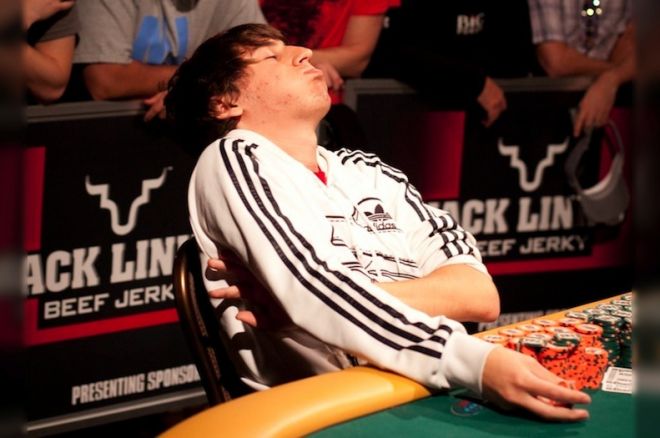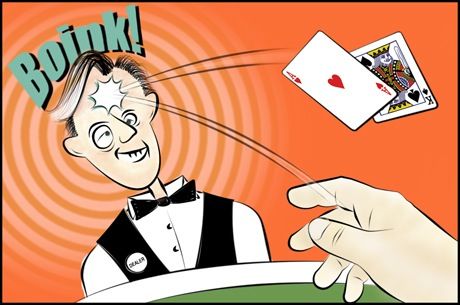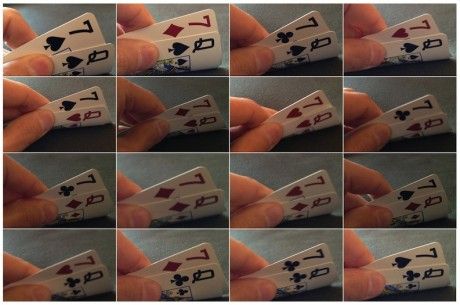How to Stop Ruminating Over Your Poker Mistakes

Have you ever made a mistake at the poker table and then spent hours (or even days in some cases) berating and criticizing yourself? Do you constantly replay or obsess over mistakes, near misses, or negative situations?
The mental process of replaying mistakes in high definition is called rumination and it has led many a poker player into the pits of despair. Once self-doubt creeps in, it is hard to get back into the groove of playing well. To deal with this effectively, you need to know how to handle setbacks during an event as well as after.
Here are a few tips to help you learn how to prevent letting one misplayed hand linger on to create ongoing negative feelings (and potentially conditions to misplay more hands):
Mistake-free poker does not exist
The first step to freeing your mind is consciously to realize that there is no such thing as mistake-free poker. Everyone, even the venerable Phil Ivey, makes mistakes. Remember that winning flush Ivey folded at showdown in the 2009 World Series of Poker Main Event? Remind yourself that it��s not making mistakes that defines you as a player �� it��s how you respond to your mistakes that does.
Refuse to react
Speaking of, what��s your typical response to mistakes? Most players simply ��react�� and that��s when the self-flagellation begins. Reacting with negativity offers very little insight and only intensifies negative feelings. Reacting is a sign of mental weakness and it serves to increase emotionality which will inevitably lead to even more mistakes. Refuse to react unconsciously and you��ll be miles ahead of your competition.
Develop a policy of moving on quickly
Train yourself to think, ��It��s a mistake, it happened, and now I need to move on.�� Your mission is immediately to get on with the game by making the next thing you do something positive. Always be thinking about what positive steps you can take.
Mistakes belong in your short-term memory
While playing, you absolutely must develop a short memory for mistakes, at least with regard to the negative, self-critical emotions they can create. Erase all previous mistakes from your mind and get ready for the next hand. Every hand is a simply a mini-performance within a larger performance and your job is to make your overall performance as good as it can be. If you become fixated on a mistake you��ve made and let that continue going forward, you can��t do that.
Look at mistakes as learning opportunities
That said, while you don��t want to keep mentally replaying a mistake and thereby create negative emotions, you do want to retain them for later so as to learn how to avoid literally replaying them (by making them again). Many self-improvement experts teach that the fastest road to success is through failing over and over again. This may sound like a strange concept, but if you get into the habit of ��debriefing�� your sessions, I think you��ll find it��s true.
To debrief, look over everything that you did well that you would like to continue doing. This has the added benefit of increasing confidence. Then review mistakes and be sure to answer the question ��what is the most important thing I can learn from this?�� Also, make a plan for what you will do in the future if a similar situation comes up. If debriefing sounds time consuming to you, let me assure you of two things. First, it��ll go faster as it becomes a part of your routine. And second, all elite players use some sort of debriefing system.
Practice mindfulness
Spending time thinking about the past or worrying about the future is counterproductive. Mindfulness is the practice of training your attention focused on the here and now. Every time you catch yourself thinking about past mistakes, reorient yourself to the present. One great way to do this is by using a cue word or phrase such as ��be all here�� or ��the next play will be my best play.�� If you��re getting caught up in thinking about a mistake, take a deep breath, remind yourself of your cue word or phrase, and then get back to business!
Dr. Tricia Cardner is the author of Positive Poker with Jonathan Little, available in paperback, audio, and e-book formats via D&B Poker as well as through the PokerNews Book Section. She also co-hosts The Mindset Advantage Podcast with Elliot Roe, available for free on iTunes, and you can follow her on Twitter @DrTriciaCardner.
Get all the latest PokerNews updates on your social media outlets. Follow us on Twitter and find us on both Facebook and Google+!








